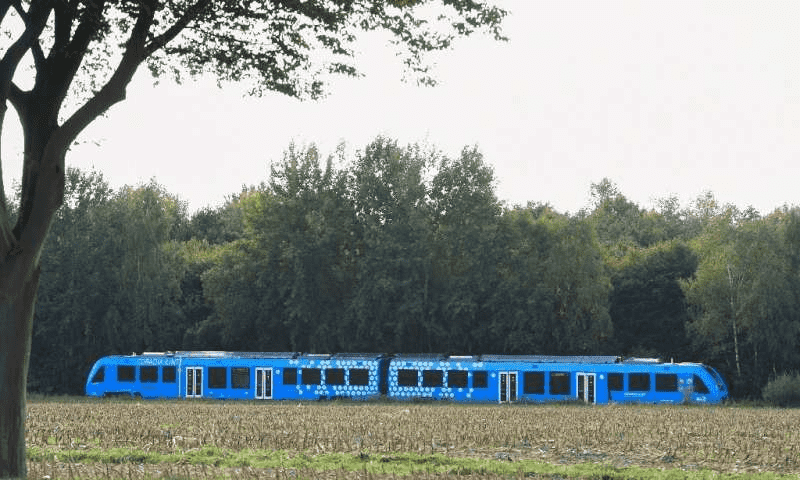Despite niggling supply issues, Germany has launched a railway line powered entirely by hydrogen, a “world premiere” and a huge step forward for green train travel nearly four years after trial operations began.
In the German federal state of Lower Saxony, the first hydrogen-powered passenger rail network in the world reportedly debuted on Wednesday.
The French company Alstom will replace diesel trains with a fleet of 14 hydrogen fuel cell-powered trains, according to the Lower Saxony Local Transport Authority (LNVG).

The remaining trains are anticipated to arrive by the end of the year, with five of the new trains already in operation.
Two pre-series trains worked without difficulties during their two years of testing operations, according to the LNVG. Around 93 million euros are projected to be spent overall on the project.
The locomotives will reduce CO2 emissions by 4,400 tonnes annually and save 1.6 million gallons of diesel fuel. The top speed of the train is 140 kilometres per hour.

“We are very proud to put this technology into operation together with our strong partners as a world premiere,” Alstom CEO Henri Poupart-Lafarge said in a statement on Wednesday.
Hydrogen trains have garnered notoriety for decarbonizing the rail industry and replacing the 20 percent of German transport that is still powered by climate-warming diesel.
The trains, which are marketed as “zero emission” ways of transportation, use a fuel cell located on the roof to combine the hydrogen with the oxygen present in the outside air. As a result, the electricity needed to move the train is produced.

The French business has signed four contracts for additional trains connecting Germany, France, and Italy. In Germany alone, “between 2,500 and 3,000 diesel trains could be replaced by hydrogen models”, said Stefan Schrank, project manager at Alstom,
Around 15 to 20 percent of the regional European market might run on hydrogen by 2035, according to Roland Berger consultant Alexandre Charpentier, a rail expert.

However, Germany will have to import heavily soon to achieve its objectives.
Recently, alliances were formed with India and Morocco. Last week, Chancellor Olaf Scholz concluded a green hydrogen agreement while visiting Canada, opening the floodgates for a transatlantic supply chain.


